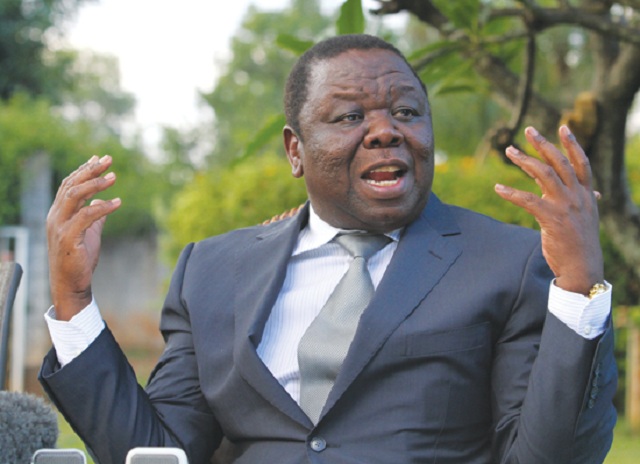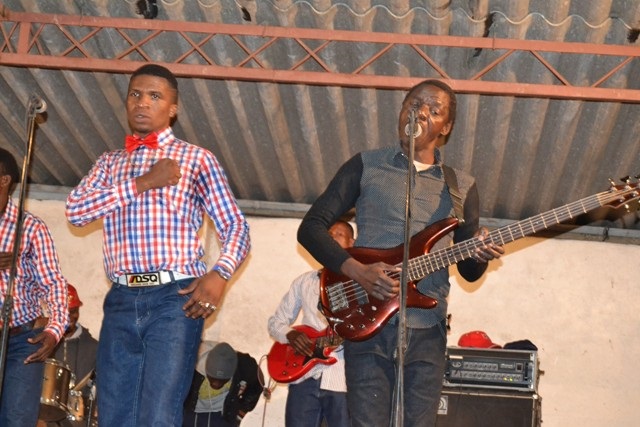Democracy and political paranoia

Reason Wafawarova
AT the point of writing this piece Kenya is tense and torn between celebrating election victors on one hand and protesting losers on the other. The Independent Electoral and Border Commission has just announced the president-elect as Uhuru Kenyatta, and Raila Odinga and his colleagues from Nasa insist against all logic and reason that the election was rigged.
There are jubilant 8 million voters on one hand and 7 million disgruntled voters on the other.
It was a closely contested ballot, and as expected this naturally comes with a lot of frustration and pain for the losers.
Like many other types of human behaviour, suspicion is not easily defined or characterised.
One basic definition states that suspicion is “a feeling or thought that something is possible, likely or true”, though more often the term is used to define someone’s mistrust and doubt over information that is presented to them, without the proof needed to know what is actually true. Another definition states suspicion as the “act of suspecting”, which implies a certain amount of belief in something without sure proof.
In 2013 we had an election here in Zimbabwe and there was so much said about Nikuv and rigging. We heard that the ballot paper had mutating ink that altered votes in favour of Zanu-PF candidates and President Mugabe. Emotions were ratcheted up to discredit the election as could possibly be done.
In Kenya we were first told that the forms with results from polling stations and constituencies had been disregarded totally and that the IEBC was just announcing random results in favour of Uhuru Kenyatta. No sooner had Raila Odinga and Kalonzo Musyoka told us about the disregarding of the election verification forms than they changed the story to make breathtaking allegations that the electronic voting system had been hacked.
The desperation on the part of the losing Nasa became evident when they changed the story to say they had their own parallel tallying centre whose results were showing Raila Odinga leading Uhuru Kenyatta by close to a million votes. That too turned out to be mere talk and rhetoric.
Sometimes it is easier to define a term by building what we know from the ground up, but in the case of defining suspicion, it is a good idea to separate the concept from similar concepts that are often wrongly intertwined. There are many similar concepts to suspicion that many people incorrectly think as being the same as suspicion, and paranoia is the most obvious example.
What we have seen with most opposition parties in Africa is telling paranoia where elections are rigged by definition, for as long as they do not go the way of victory for the opposition. In countries like Zambia, Zimbabwe and Kenya an incumbent government can only win a national election by ‘stealing’ it, and anyone who thinks otherwise is instantly labelled an enemy of democracy.
Paranoia is a disorder and a psychological term used to describe intense feelings of suspiciousness and mistrust. Paranoia often involves the belief that there are others out there that want to cause harm. In severe cases the disorder can completely incapacitate the patient, causing significant distress and preventing the patient from being able to lead a normal life.
Likewise political paranoia causes intense feelings of suspiciousness and mistrust, and this is precisely why MDC-T spokesperson Obert Gutu said the CIO had influenced the thugs that drove from Harare to Bulawayo to assault Thokozani Khupe. When Welshman Ncube split from the original MDC in 2005 we were told he was a CIO operative, and so were we told of rebels like Tendai Biti and Jacob Mafume when they too split from Tsvangrai in 2013.
Paranoia can present itself as an obsessive attitude towards privacy, or it can revolve around a persistent delusion, where the patient sincerely believes in something that is not true or is not readily identifiable by other people in society.
Each time we have had an opinion poll in favour of Zanu-PF’s chances of winning an upcoming election the pollsters have been dismissed as CIO agents, and that includes Afrobarometer.
A key feature of the disorder is the failure to accurately read emotions on other people’s faces, and to draw negative conclusions from situations that are neutral and open to interpretation.
As a writer I have witnessed instances where direct criticism of Zanu-PF is interpreted as praises by paranoid opposition activists so accustomed to this label that says anyone published by The Herald is a Zanu-PF card holder and a propaganda agent for the ruling party.
Suspicion is a cognition that comes with many negative connotations, but like every other evolved human behaviour, suspicion can be a very useful (and perhaps very important) trait. For example, it can help us to keep our belongings safe, make better social judgments, and adapt better to difficult situations.
In politics suspicion can help make better judgements as well. It can help keep the organisation secure, and it makes infiltration harder for the unscrupulous outsider.
Psychologists agree, however, that there comes a point where suspicion stops being a useful trait and starts having a negative impact on our lives, and if suspicion becomes very severe and starts affecting daily life, this could be paranoia.
Just like paranoia, suspicion does not only affect people who have an identifiable pathology; there is a continuous spectrum of symptoms and severities for people in all walks of life.
Raila Odinga failed against Mwai Kibaki in 2007, failed to beat Uhuru Kenyatta in 2013, and has once again failed to beat Kenyatta. Morgan Tsvangirai is the perennial loser to Zanu-PF, although like Raila Odinga was to Kenya, he became the country’s Prime Minister for five years through a power-sharing deal.
Both Raila Odinga and Morgan Tsvangirai are victims of massive political paranoia. Essentially the two friends are convinced beyond conviction that they are incapable of being voted against. They are convinced that there is only one possible election outcome for them in any electoral contest – victory.
Raila Odinga was on the same footing with Uhuru coming into Election 2013. Both men were coming from the Government of National Unity and none had the advantage of incumbency. After narrowly losing to Uhuru in that contest it was always going to be difficult for Odinga to expect to beat a Uhuru with an added advantage of incumbency.
Although Raila Odinga has a huge following in Kenya, it was always predictable for many analysts that he was not a safe bet for Kenya’s next presidency. In short the defeat of Nasa at the hands of the Jubilee party was fairly predictable.
Suspicion is a very common cognition with people who suffer from paranoia, but it does not necessarily imply paranoia. What usually separates simple suspicion from paranoia is the intensity and frequency of the suspecting thoughts, and what separates mild paranoia from a clinical disorder is the strength at which the underlying ideas are believed.
While it is natural for opposition political parties to be suspicious, it beats all logic when opposition politics begin to distrust neutral players like Election Observer missions; the likes of the AU mission, the Commonwealth, or regional observer groups like Sadc, Ecowas or EAC.
You might not be paranoid if you think that there are certain people who are out to get you, but if you believe that there is a focused and concerted effort to hurt you by a non-specific entity or group, then you could very well be paranoid.
In order for Africa to develop and mature into an indisputable democracy, there is a need for trust in our own system, trust in ourselves, respect for competitors, tolerance of divergent views, and above all the decency to accept losing as part of any democratic process.
It is true that electoral fraud can happen, and that it has happened many times in the past. However, it is really important to understand that electoral fraud does not suddenly happen just because one alleging it has lost an election.
While we call for honesty, transparency, integrity and fairness in the carrying out of elections across the continent we equally call for maturity on the part of opposition politicians in Africa.
It is not by definition that every popular opposition party must by definition come out triumphant in any national election. If we come to believe that
Election 2018 has to be won by Morgan Tsvangirai and his MDC Alliance, or whatever it is that he calls the party now, we could be missing the point.
We must guard against dogmatic tendencies where intolerance takes the place of reason.
It is really hard to accept defeat, but the mark of maturity is to accept one’s own weaknesses and failure. The epitome of failure is being in denial the way Odinga is right now.
Let it be accepted that our countries are above our politics, and that we will all politic as much as we like before we die; but we will leave Africa behind for the unborn generations.
Africa we are one and together we will overcome. It is homeland or death!
Reason Wafawarova is a political writer based in SYDNEY, Australia












Comments